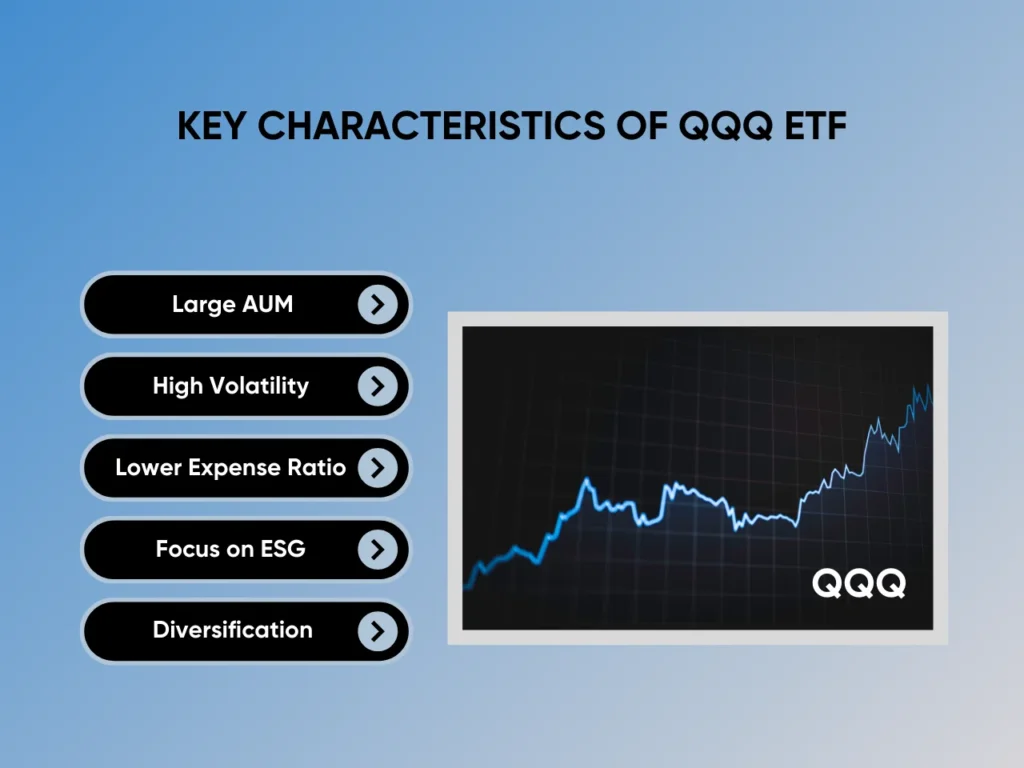
QQQ vs QQQM: Which ETF Fits Your Investment Profile?
Choosing the right ETF for portfolio performance, especially with high-profile options like QQQ vs QQQM, requires a deep dive into various metrics that impact long-term gains. Investors often weigh factors such as expense ratio, dividend yield, and tax efficiency when selecting between the Invesco NASDAQ 100 ETFs. While both ETFs offer exposure to the NASDAQ stock market, understanding their features is key to making an informed decision that aligns with your financial goals.
At Spartan Trading, we guide investors through the complexities of the stock market. We specialize in stock and option idea generation, focusing on popular ETFs like QQQ vs QQQM. Our insights consider essential metrics like average daily volume, holdings, and standard deviation to assist in choosing the better option for each trader’s needs. We also analyze the impact of a lower spread, liquidity, and capital gains within these ETFs to equip you with valuable insights.
Utilizing our expertise, we’ve crafted this guide to explore QQQ vs QQQM comprehensively. We’ll dive into expense ratios, trading spreads, and more. By the end, you’ll understand which ETF aligns with your financial goals and offers the best route to enhance your portfolio’s performance.
Let’s get started!
What You Must Know about QQQ vs QQQM ETFs
Investors seeking exposure to the NASDAQ-100 Index often consider QQQ vs QQQM EFTs. Understanding their unique structures, fees, and performance can provide valuable insights for aligning with your financial goals. Let’s explore the essentials of each, helping you make informed decisions tailored to your investment needs.
What Is QQQ ETF?
QQQ ETF is an exchange-traded fund (ETF) widely known for tracking the performance of the NASDAQ-100 Index, comprising 100 of the largest non-financial companies listed on the NASDAQ Stock Exchange. Known for its exposure to the technology sector, QQQ ETF provides investors with a diversified portfolio focused on growth stocks. It has become a go-to choice for those seeking to capitalize on the performance of leading tech companies.
Key Characteristics of QQQ ETF

- Large AUM: QQQ ETF boasts a significant asset under management (AUM), reflecting its popularity among investors. This large AUM ensures liquidity and stability.
- High Volatility: QQQ ETF is known for its volatility, mainly due to its heavy concentration in the tech sector. Investors must consider this factor when evaluating risk.
- Lower Expense Ratio: Although the QQQ ETF offers exposure to top tech companies, it has a higher expense ratio than other ETFs like QQQM.
- Focus on ESG: QQQ ETF includes companies with strong environmental, social, and governance (ESG) practices, making it a better choice for socially conscious investors.
- Diversification: The ETF provides diversification within the technology sector, reducing the risk of investing in individual stocks.
What Is QQQM ETF?
QQQM ETF is a newer, more cost-effective alternative to QQQ ETF, designed to track the same NASDAQ-100 Index. It offers a lower expense ratio, making it an attractive option for long-term investors looking for exposure to the same top tech companies without the higher costs associated with QQQ ETF.
Key Characteristics of QQQM ETF

- Lower Expense Ratio: QQQM ETF has a lower expense ratio than QQQ ETF, making it a better choice for cost-conscious investors.
- Similar AUM Growth: Although QQQM ETF has a smaller AUM, it rapidly grows as more investors recognize its cost advantages.
- Reduced Volatility: QQQM ETF tends to be less volatile than QQQ ETF, providing a smoother investment experience.
- Long-Term Focus: Designed for long-term investors, the QQQM ETF offers similar exposure to the NASDAQ-100 Index at a lower cost.
- Issuer Credibility: Like QQQ ETF, QQQM ETF is issued by a reputable financial institution, ensuring trust and reliability.
Both QQQ vs QQQM ETFs provide excellent exposure to the NASDAQ-100 Index, offering diversification across major sectors like technology and healthcare. Understanding the key differences, including volatility and issuer considerations, can help investors choose the ETF that best aligns with their financial goals.
Comparative Analysis between QQQ vs QQQM ETF
When evaluating investment options, the debate often centers around finding the right exchange-traded funds (ETFs). This analysis will explore the nuances between QQQ vs QQQM ETF, highlighting their unique benefits that could suit different investment profiles. Let’s dive into the specifics of these ETFs to help you make an informed decision.
1. Expense Ratios
Expense ratios directly impact returns, making them critical in any investment decision. QQQ vs QQQM present slight differences in this area.

- QQQ: Known for its long-standing presence, QQQ comes with an expense ratio of 0.20%. This ratio covers administrative costs, management fees, and other operational expenses.
- QQQM: Designed as a cost-effective alternative to QQQ, QQQM offers a lower expense ratio of 0.15%. This lower ratio makes QQQM a cost-effective option for long-term growth-focused investors.
The marginal difference may seem negligible, but a lower expense ratio over time could result in more substantial savings and enhanced returns. Investors must weigh this factor heavily, particularly when considering the impact on large investments.
2. Liquidity and Trading Volume
Liquidity and trading volume are vital when choosing between QQQ vs QQQM. These factors influence how easily shares can be bought or sold without affecting the price.

- QQQ: With a high average daily trading volume, QQQ exhibits exceptional liquidity. This liquidity ensures that investors can enter and exit positions swiftly, with minimal impact on the market price. The high trading volume also reduces the bid-ask spread, benefiting active traders.
- QQQM: Although relatively newer, QQQM shows decent trading volume. However, it doesn’t match QQQ’s liquidity levels. Investors may notice a slightly wider bid-ask spread with QQQM, which could affect costs, especially for those engaging in frequent trading.
Choosing between these ETFs depends on your trading style. If liquidity is a priority, QQQ may be more suitable. On the other hand, for long-term holders who aren’t as concerned with daily trading volumes, QQQM remains a solid option.
3. Portfolio Composition and Sector Exposure
An ETF’s portfolio composition and sector exposure dictate the underlying risk and return potential. Understanding these elements in the QQQ vs QQQM debate can guide investors toward the ETF that aligns with their market outlook.

- QQQ: This ETF tracks the Nasdaq-100 Index, which encompasses 100 of the largest non-financial companies listed on the Nasdaq Stock Market. It is heavily weighted toward technology, with significant exposure to giants like Apple, Microsoft, and Amazon. Additionally, QQQ provides moderate exposure to the consumer discretionary and healthcare sectors.
- QQQM: QQQM mirrors the same Nasdaq-100 Index, offering identical sector exposure and portfolio composition as QQQ. This similarity ensures that both ETFs deliver comparable returns influenced by the same market forces.
The decision here hinges on investor preference. If your goal is to capitalize on the tech industry’s growth, QQQ and QQQM offer robust exposure. However, understanding each ETF’s sector weightings can help you manage risk based on sector-specific performance.
4. Dividend Yield and Distribution
Dividends are crucial to the total return on investment, especially for those focused on income generation. Comparing QQQ vs QQQM regarding dividend yield and distribution can reveal which ETF better aligns with your income goals.

- QQQ: QQQ provides a modest dividend yield, reflecting its focus on growth rather than income generation. Dividend distributions typically occur quarterly, and reinvesting them can enhance long-term returns.
- QQQM: With a similar portfolio, QQQM offers a comparable dividend yield. The distribution schedule mirrors QQQ’s, ensuring consistency for investors who prioritize regular income.
While neither QQQ nor QQQM is primarily designed for high dividend yields, both provide opportunities to reinvest dividends, contributing to growth. Investors should consider their income needs and reinvestment strategy when selecting these ETFs.
5. Tax Efficiency
Tax efficiency is a critical consideration for long-term investors, as it impacts after-tax returns. Evaluating the tax implications of QQQ vs QQQM helps understand which ETF might offer better efficiency, particularly in taxable accounts.

- QQQ: Given its established nature, QQQ has a history of capital gains distributions, which may lead to tax liabilities for investors, even if they haven’t sold their shares. However, due to its structure and management, QQQ has been relatively tax-efficient.
- QQQM: QQQM, designed with tax efficiency in mind, aims to minimize capital gains distributions. This feature makes QQQM appealing to investors looking to optimize their after-tax returns.
Tax considerations are an essential aspect of any investment strategy, particularly for those with taxable accounts. For investors focused on maximizing tax efficiency, QQQM may have a slight edge over QQQ.
Choosing between QQQ vs QQQM ETF depends on your investment objectives, trading style, and cost sensitivity. While both ETFs offer exposure to the same underlying index and similar sector exposure and growth potential, differences in expense ratios, liquidity, and tax efficiency should be carefully considered.
Investor Profile Matching: Which Should You Choose?
Selecting the right ETF depends on your unique investment profile. When comparing QQQ vs QQQM, understanding which ETF aligns with your financial goals is essential. Both ETFs track the Nasdaq-100, but subtle differences suit distinct investor types. Let’s explore who should consider QQQ and who might prefer QQQM.
Who Should Consider QQQ ETF?
QQQ attracts specific investor profiles thanks to its characteristics. This ETF, popular for its liquidity and market presence, is a strong contender for certain types of investors. Here’s who might find QQQ more suitable:

- Short-Term Investors: Individuals focusing on short-term gains or frequent trading will appreciate QQQ. Its high liquidity enables quick entry and exit from positions, and the ETF’s active trading volume minimizes the risk of significant price shifts between transactions. Short-term investors seeking to capitalize on market movements often find QQQ ideal due to its ability to handle large trades swiftly.
- Institutional Investors: QQQ is a favored option for institutional investors who manage large funds and require an ETF capable of handling substantial trades without affecting the market price. QQQ’s large assets under management (AUM) and robust market presence provide the stability that institutions demand.
- Investors Seeking High Trading Volumes: QQQ is optimal for those prioritizing liquidity. The ETF’s high trading volume allows investors to execute trades efficiently. This capacity reduces the costs associated with entering or exiting positions, rendering QQQ the preferred choice for those who require consistent market access.
Who Should Consider QQQM ETF?
QQQM offers a different appeal, particularly for investors with a long-term outlook and a focus on cost efficiency. Here’s who might lean towards QQQM:

- Long-Term Investors: QQQM suits long-term investors, prioritizing cost savings. QQQM’s lower expense ratio can positively impact returns over extended periods. Long-term investors benefit from the lower costs, as the compounded savings significantly enhance their overall returns.
- Cost-Conscious Investors: Those who are mindful of fees will find QQQM appealing. It offers a more cost-effective option, particularly for long-term holding strategies. Cost-conscious investors who aim to maximize returns while minimizing expenses will likely choose QQQM.
- Tax-Sensitive Investors: QQQM might be preferable for investors concerned with tax implications. The ETF’s structure can offer slight advantages in tax efficiency, particularly for those in higher tax brackets. Tax-sensitive investors looking to optimize their after-tax returns should consider QQQM as a strategic part of their portfolio, especially when tax efficiency is a priority.
Key Takeaway
When comparing QQQ vs QQQM, investors must focus on strategies that align with their financial goals. Although both ETFs offer exposure to the tech-heavy Nasdaq-100, their strategies differ, potentially leading to different returns. An inverse ETF strategy might provide a hedge during market downturns, effectively managing risks within your portfolio. Additionally, paying attention to small stock dividends in these ETFs can introduce an additional potential income source.
Maintaining a detailed trading journal can help track performance, refine strategies, and improve decision-making. Documenting trades, noting market conditions, and reflecting on outcomes enable better long-term results. This practice becomes especially important when navigating between QQQ vs QQQM since small differences can impact overall portfolio performance.
Ready to make your decision between QQQ vs QQQM? At Spartan Trading, we guide you through every step of your investment journey. Whether you seek growth, income, or risk management, our expertise ensures you choose the ETF that best fits your profile. Let us help you achieve your financial goals with tailored advice and support.



